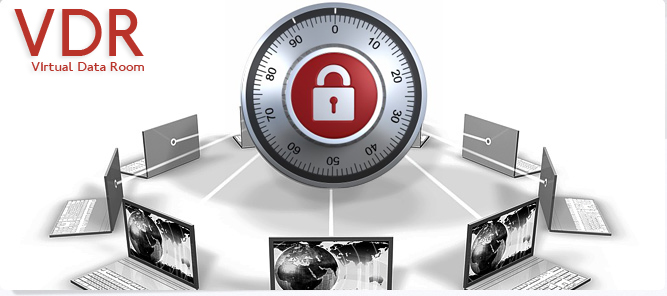<p style="text-align: justify;">Once the preserve of the corporate finance world, virtual data rooms are quickly establishing themselves as a must-have for companies across a wide variety of industries. Attracted by the OPEX approach IT and data storage, plus the high level of security virtual data rooms can offer, companies have signing up to virtual data room sites in increasing numbers of the past decade.</p>
<h3 style="text-align: justify;">So what are Virtual Data Rooms?</h3>
<p style="text-align: justify;">Virtual data rooms are corporate sized file sharing platforms, with extra integrated security and collaboration features. They allow companies and stakeholders to store confidential data in a single repository safely and securely, limiting access to certain files or directories to individual users or groups who have the relevant and necessary permissions.</p>
<p style="text-align: justify;">They first popped up as a virtual solution to physical data rooms, which were necessary in the corporate finance world for keeping confidential documents under lock and key in the run up and during and M&;A deal. Pre-virtual data centre, firms would need to host physical documents at a secure site and physically request access to individual files in person every time they were required.</p>
<p style="text-align: justify;">As you might imagine, the process was slow and expensive and hence the pioneering of virtual data rooms. Suddenly files could be accessed 24 hours a day, 7 days a week without the need to physically request and retrieve files of information. Updating and versioning files also become incredibly simple.</p>
<p style="text-align: justify;">The key difference between VDRs and other file sharing platforms is security. Not only must strict control over who can access documents be maintained, archiving and record keeping is paramount in order to comply with relevant corporate law. Moreover, the location in which files are stored must be considered; storing data about a UK firm on a data centre in the USA for example would subject the owners to the US Patriot Act, something most UK companies would be keen to avoid! On a similar note, a VDR should ensure the documents and records it does store complies with the relevant legislation and that things like data-protection requirements are carefully adhered to.</p>
<h3 style="text-align: justify;">And the Future?</h3>
<p style="text-align: justify;">Since emerging from near obscurity little over a decade ago, VDRs have fast become established as must-haves for many corporate financials. Along the way, however, their user base has spread and diversified into a number of other industries with organisations in fields such as bio-medicine, education and manufacturing beginning to utilise their services.</p>
<p style="text-align: justify;">The scalability of a VDR is also another reason companies outside M&;A are turning towards the technology. Investing in physical hardware is the precursor to a long process of updating and expansion. The amount of storage space on a VDR however, can quickly and simply be increased at a fraction of the cost.</p>
<p style="text-align: justify;">This diversification is set to continue as VDRs have cottoned on to the fact that the secure, easy to configure file sharing platforms could be of use to a wide variety of organisations. Many corporations and research facilities are beginning to turn to VDRs as a solution to their data storage problems.</p>
<p style="text-align: justify;">As a result, VDR developers are putting an emphasis on crisp, intuitive user interfaces that allow non-technical staff to set up and use file sharing systems in a simple and effective manner. Data access will become increasingly seamless, allowing operators to quickly retrieve information without an arduous administration process. This feature is essential for companies where talented employees must waste as little as possible of their valuable time on admin tasks.</p>
<p style="text-align: justify;">More importantly, however, there will be far more emphasis on the service provided by the VDRs. Support in installation and the setup of the necessary infrastructure will all come packaged as part of the price. VDRs will take on the task of scanning, indexing and setting up user permissions as much as possible and will provide professional audit and reporting tools. The preparation of documents will be facilitated through the VDR too as inter-party communication features. Many of these features are already available in the VDRs provided by Projectfusion.</p>
<p style="text-align: justify;">In summary, VDRs are revolutionising the entire corporate data storage and transaction process. The service and security they offer is currently unrivalled, and as a result more and more companies are beginning to take note. No longer the preserve of corporate finance, VDRs are quickly being adapted across a multitude of industries, from bio-medicine to manufacturing.</p>

The Future Of Virtual Data Rooms
